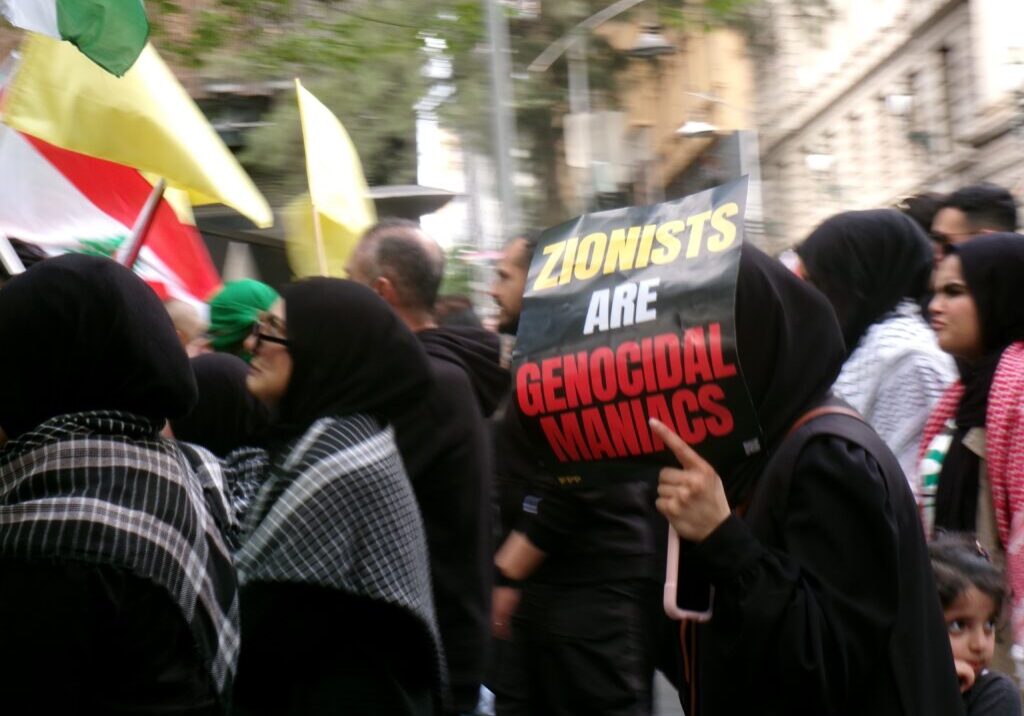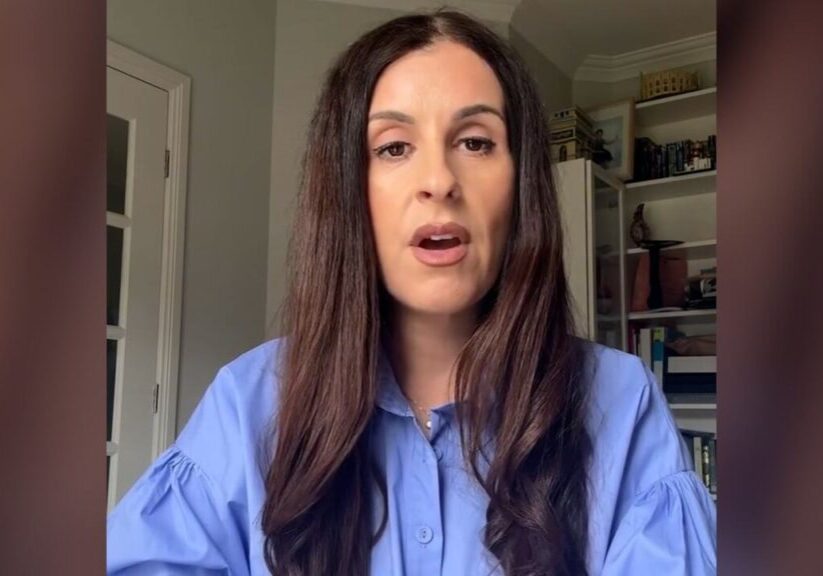Australia/Israel Review
Deconstruction Zone: Delegitimisation/Settlement Blues
Apr 1, 2015 | Sharyn Mittelman
Sharyn Mittelman
Israel faces a “war of words, images and ideas”, posing a significant strategic threat to its existence, according to Dr. Einat Wilf, a former member of the Knesset and an Adjunct Fellow at the Washington Institute for Near East Policy. Dr. Wilf recently visited Australia as a guest of the Australia/Israel & Jewish Affairs Council.
On Feb. 8, Dr. Wilf told an audience in Melbourne that she uses the word “war” intentionally, explaining: “We’re seeing a non-violent battle, a war that is being waged by non violent means but ultimately for a very sinister and violent end.” Dr. Wilf was referring to what she calls the “placard strategy” – part of the campaign to delegitimise Israel employed by campaigners for Boycott, Divestment and Sanctions (BDS) against Israel.
She explains that the “placard strategy” – seen at demonstrations, promulgated in the media and employed by anti-Israel speakers in debates, equates Israel/Zionism with “racism”, “ethnic cleansing”, “apartheid”, and “genocide”. Dr. Wilf notes the placards never say “Zionism equals the political movement for national self determination of the Jewish people in their ancient homeland.” Rather, the “placard strategy” involves the repetition of lies and smears that stick despite lacking any solid intellectual basis.
Moreover, Dr. Wilf disputed claims that the “placard strategy” should be welcomed because it involves non-violent criticism of Israel, stating, “I want to argue that there is absolutely no connection” between non-violence and justice. “You can have a violent struggle and we have had many of those in history, for noble cause, for just cause and you can have a non-violent struggle for a very sinister cause and I want to argue this is what we’re seeing here.”
According to Dr. Wilf, the intention of the “placard strategy” is to equate Israel/Zionism with subject matter that is “universally considered evil” – apartheid, colonialism, genocide – which as a result equates Israel with “evil”.
Dr. Wilf believes the repetition of these ideas, “achieves an intellectual atmosphere where a world without Israel is considered a better world.” She added, “When you prepare peoples’ minds to think what they are doing is noble they can commit some of the worst atrocities… And if you tell them Israel and Zionism are evil, the world would be better off without them, ultimately you create an environment where physically ridding the world of Israel is not considered an atrocity, not considered bad, it would be considered desired, noble.”
So what can be done to counter this “war” of ideas? Dr. Wilf believes that first of all friends of Israel must open their eyes to what is actually happening, “because so many of us would like to believe that this is about a debate on policy, that it is about legitimate criticism of Israel’s actions, we want to believe that this is something minor, unimportant, by fringe groups. But it’s none of that.” She added that the “placard strategy” must be distinguished from legitimate criticism of Israel, commenting, “I know when I engage in a serious reasoned debate about Israel. Some people say it’s a very thin line. It’s not a thin line.”
Dr. Wilf noted that this battle could take three decades but that supporters of Israel should aim for victory. She defines “victory” as reversing the social acceptability equation that has effectively excluded people from publicly expressing their support for Israel in some intellectual and academic circles. She defined victory specifically as reaching “the day that those who hold rabid anti-Israel and anti-Zionist views will have the social acceptability that neo-Nazis enjoy today.” Dr. Wilf also said she is optimistic that this “war” can be won, because she noted, “If there is any war that the Jewish people and our friends should win, it’s a war of words.”
Dr. Wilf also strongly took on obsessive claims that settlements are the key obstacle to a two-state resolution, making four points:
1) There were no settlements in the West Bank and Gaza prior to 1967 and the Arab Countries and the PLO were still at war with Israel and denied its right to exist;
2) Despite Israeli control of the West Bank for nearly 48 years, the settlements still take only a small fraction of the land and do not prevent the emergence of a Palestinian state, as studies by Israeli peace groups have shown;
3) Settlements and their growth have not prevented successive Israeli PMs from making successively better territorial offers to the Palestinians, all the way up to Barak’s Taba offer and Olmert’s 100% (West Bank and Gaza, less some settlements plus swaps) in 2008, which is still the standard, and which have all been rejected.
4) The Government of Israel has demonstrated time and again that for peace – and even for much less – it is willing and capable of uprooting settlements ruthlessly and effectively: in Sinai, in Gaza and in the northern West Bank. There is no reason to believe it will not do so again for true peace with the Palestinians and the entire Arab world.
Tags: Anti-Zionism






